Any time of year can be perfect for a poetry unit, but spring—when flowers bloom and sunshine returns—seems like an especially appropriate season to introduce students to the beauty of verse. Plus, April is National Poetry Month, making it the ideal time to share all of the learning opportunities these National Poetry Month resources have to offer.
Teaching Poetry: A Roundup of National Poetry Month Resources
For younger students, a poetry unit can serve as an introduction to rhythm, rhyme, phonological awareness and more. Short, silly and fun poems engage even the littlest learners, and can help build their vocabulary and provide short bursts of background knowledge too. With older students, poetry is an amazing vehicle for studying figurative language, imagery, vocabulary, inferences and more. Poems also make strong mentor texts, because they’re short and can easily be used to model strategies during a mini-lesson. And students of all ages can enjoy the freedom that comes with writing poetry, since they don’t have to worry about form and structure.
Check out these articles for some fresh ideas on how to teach poetry in your classroom:
10 Ways to Use Poetry in Your Classroom
From activating prior knowledge to serving as a mentor text to inspire writing, poetry can be used in the classroom in SO many different ways. This article from Reading Rockets highlights 10 types of lessons that poetry books can support, including recommended texts to go with each.
28 Must-Share Poems for Elementary School
Need a quick round-up of short poems to share with your elementary students? Look no further than this roundup from We Are Teachers. It includes short excerpts from favorite books in verse and poetry collections like Where the Sidewalk Ends, The Lorax, Jabberwocky and more.
“In the space of a class period, it’s possible to employ multiple reading strategies your class has studied this year, just by putting two poems side by side and engaging your students’ curiosity,” says ninth grade English teacher Brett Vogelsinger. See some of his suggested pairings, as well as how (and why) to create your own.
An Explanation into Found Poetry
Instead of having students write poetry, what about letting them find poetry? 7th grade teacher Pernille Ripp knows that many of her students don’t care for poems, but she likes to show them how they too can create meaning out of words through “found poetry.” Discover the creative ways she helps her students feel like poets—without actually writing a word.
‘Out of Wonder’ Aims to Inspire a New Generation of Poets
Out of Wonder, a newly released poetry anthology from Newbery award-winning author and poet Kwame Alexander features poems in the style of well-known poets like Robert Frost and Maya Angelou. Teachers and educators alike will enjoy this NPR interview with Alexander about how this title can be used to get kids excited about both poetry and famous poets.
What does a Kelly Gallagher poetry unity look like? In this excerpt from his book In the Best Interest of Students, Gallagher shares a look at what a stand-alone poetry unit looks like in his classroom.
Top 10 Poetry Videos for National Poetry Month
Whether you share them with students or watch them to inspire yourself, these poetry videos—which include performances by Shel Silverstein and Maya Angelou—bring poetry to life for poetry enthusiasts of any age.
Books and Collections to Support a Poetry Unit
As you bring the study of poetry into your classroom, there’s one tool you can’t do without: books! We’ve carefully curated a variety of poetry collections to support almost any type of poetry unit. Here are just a few of our favorite National Poetry Month resources:
Grade Level Poetry
Introduce poetry at any grade level with collections designed to support standard interest and reading levels at each grade.
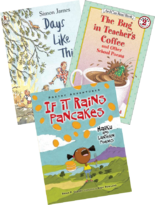 |
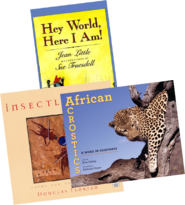 |
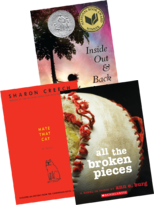 |
|---|---|---|
| Poetry Grade 2 | Poetry Grade 4 (International) | Poetry Grade 6 |
Poetry for Writing
With a mix of instructional and mentor texts, these collections are designed for targeted mini-lessons and other writing activities in the classroom.
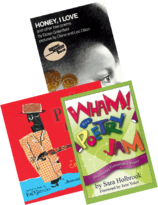 |
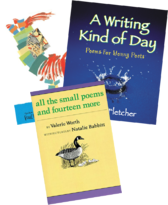 |
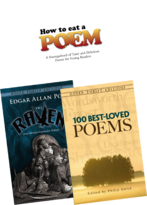 |
|---|---|---|
| Writing Poetry Grade 3 | Writing Poetry Grade 5 |
Writing Poetry Grade 7 |


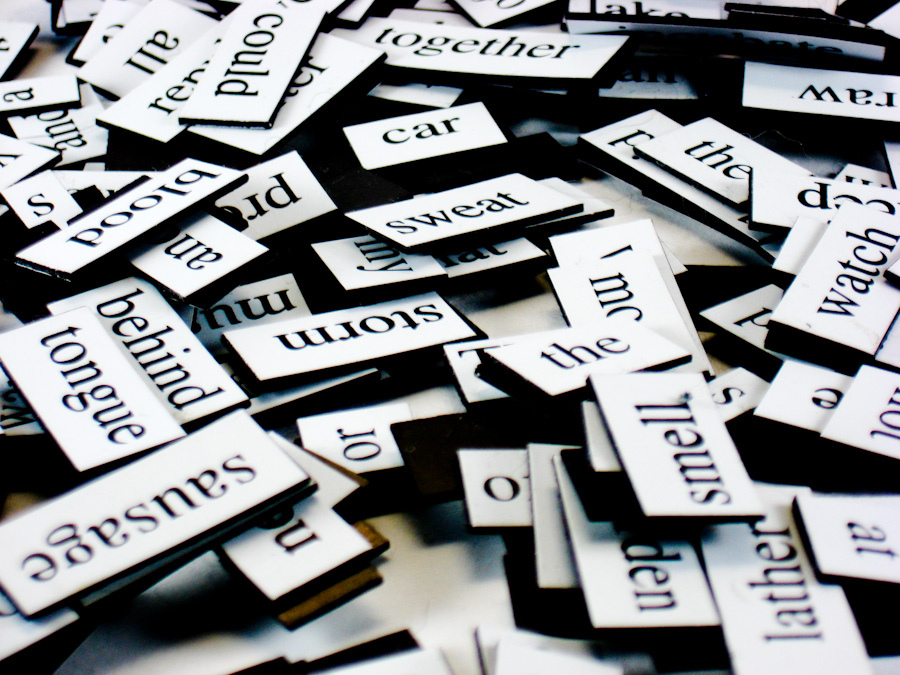

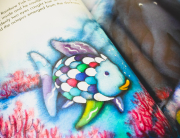

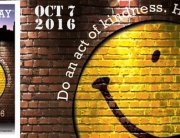
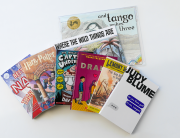
Leave A Comment